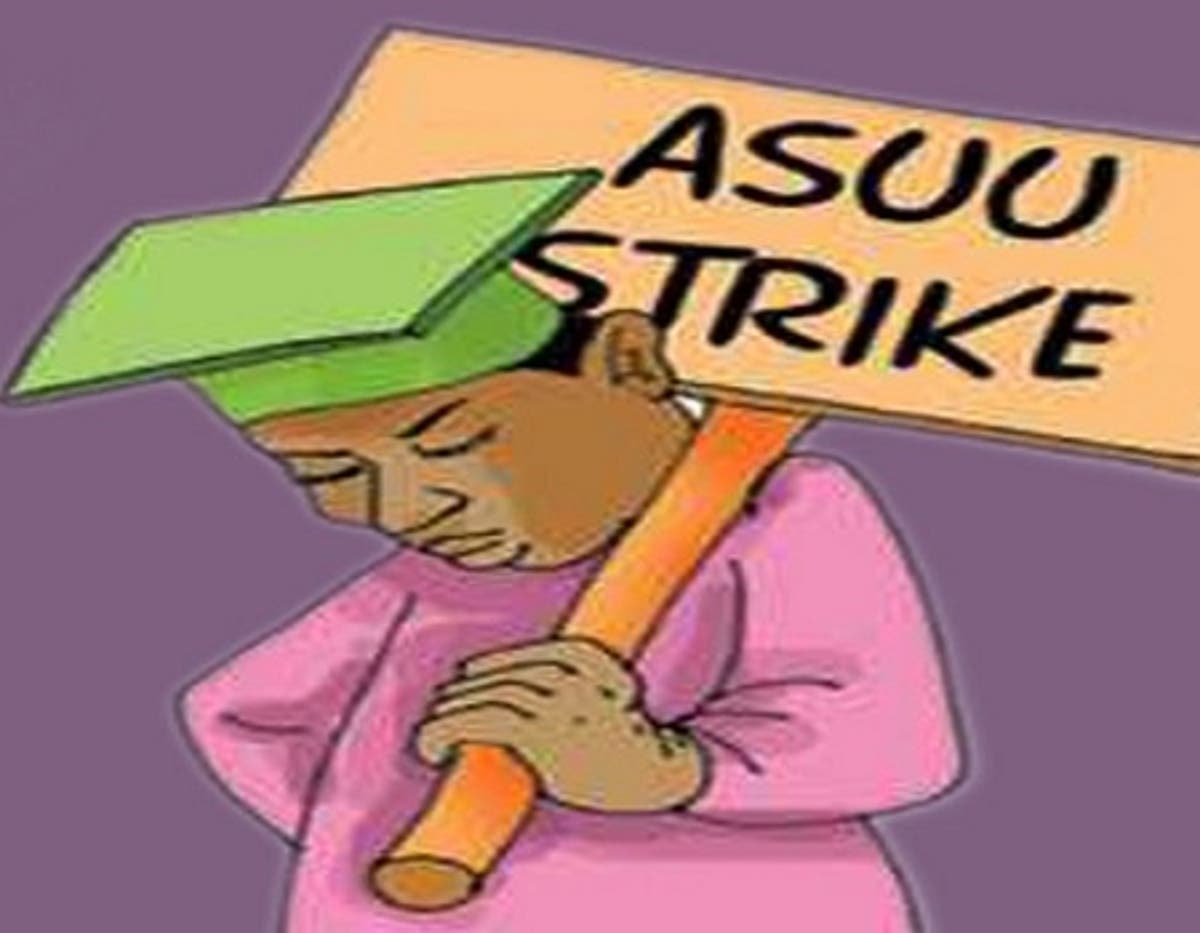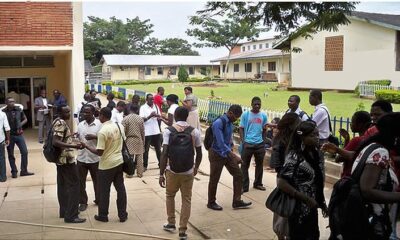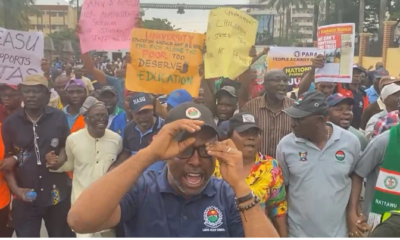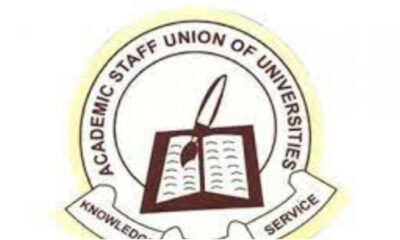News
ASUU strike: Brain drain to sweep universities as lecturers move overseas

There is still no end in sight to the industrial action by the Academic Staff Union of Universities, ASUU, especially with the case now before the National Industrial Court, Abuja division.
According to reports, universities would soon be hit by brain drain as some lecturers are already on their way out of the country.
The students, as well as parents, suffer the most in this impasse due to undue elongation of academic sessions with its attendant toll on the economic fortunes of parents and guardians.
Right from the previous administrations, the academic unions had embarked on several strikes to express their grievances over federal government’s non-responsiveness towards the welfare of their members, as well as infrastructural deficit that has marred the tertiary institutions in the country.
Suffix it to say that there was no administration since 1999 that did not witness ASUU strike, but the latest which started on February 14, 2022 after a 14-month-strike notice from the union had further crippled the educational system.Though the Federal government had at different times attempted to break the deadlock by engaging the striking union in meetings and negotiations, the strike had continued.
ASUU had made seven key demands from the federal government, which include: funding of revitalisation of tertiary institutions; Payment of outstanding Earned Academic Allowances (EAA); review of NUC 2004 Act to tackle the proliferation of Universities and 26 percent budgetary allocation to education sector.
Others were: Implementation of the University Transparency and Accountability Solution (UTAS); Constitution of visitation panels, withheld salaries and non-remittance of check-off dues of unions, as well as addressing the salary shortfall of lecturers.
It was gathered that the federal government had met some of the demands but ASUU refused to shift ground due to previous experience with the FG in not honoring agreements.
The Minister of Education, Adamu Adamu attributed the lingering strike action to the union’s failure to come to a compromise, noting that no demand can be satisfied 100 percent by any government.
Adamu said the FG has offered a 23.5 percent salary increase for lecturers of all categories and a 35 percent increase for professors, describing the offer as the “best” the federal government could do, even as he noted that the increment will take effect from January, 2023.
He added that the FG had resolved to release N200 billion in 2023 budget for revitalization of federal universities, to pay outstanding earned allowances, as well as ensure prompt payment of allowances as they arise to all deserving staff, adding that the FG would uphold the ‘no work, no pay policy’.
The Minister noted that the present administration would not be cajoled into endorsing unrealistic agreements with ASUU as done by the previous administration just to douse tension, saying that ASUU should come to terms with Nigeria’s present economic realities.
However, these conciliatory offers never moved ASUU, which is bent on getting 100% of its demands implemented. Though it is obvious that ASUU’s refusal is based on the minister’s stance on the government’s earlier resolve not to pay striking lecturers for the period they did not work, his silence on the timeline for the release of the outstanding N1.2 trillion arising from the 2009 and 2012 agreements is another issue.
Also, one of the bones of contention according to the Minister is the issue of the proposed payment platform, which is yet to be approved by President Muhammadu Buhari as the technical committee in-charge of the process has not submitted its report.
“The President is actually waiting for the report of the technical committee on the three payment platforms. I have seen one of the reports but I have not seen the final one. From what I have seen, the U3PS is probably the best followed by UTAS and IPPIS,” he said.
ASUU National Chairman, Emmanuel Osodeke, however, explained that what the union is demanding is not just for the welfare of lecturers but for the refurbishment of Nigerian universities to attract students from other parts of the world.
According to him, “We’re asking for that money for Nigerian students, and Nigerian parents. The money is for building infrastructure, upgrading libraries, hostels, and lecture theatres so that students will not be having lectures through windows; so that students will not be sitting on the floor during lectures, the salaries of lecturers should be competitive.”
The back and forth nature of the situation has put some students and their parents at a fix. Some lecturers who got offers to teach outside the country have already travelled out.
The Chairperson of ASUU, Akwa Ibom State chapter, Dr Happiness Uduk, who also confirmed that some lecturers and professors are leaving the country, said the federal government should act fast to avert the impending doom this will spell on the educational system in Nigeria.
Though she did not mention the number of lecturers and professors that have left University of Uyo, UniUyo, where she teaches, she noted that, ”actually, professors and other lecturers in UniUyo who had opportunities outside have left and more are leaving the country for greener pastures.”
Students on the other hand, who were interviewed by our correspondent, expressed worry over the lingering ASUU strike, urging the FG and the Union to have a truce so that academic activities would resume.
However, the senator, representing Ikot Ekpene Senatorial district, Dr Chris Ekpenyong in an exclusive interview shared sympathy with the striking union and wondered why the federal government could not meet ASUU demands completely once and for all.
Describing the educational system in Nigeria as dysfunctional and the infrastructural status as catastrophic, the Senator urged the federal government not to fold its arms and allow the institutions to rot away.
According to him, “I share the sympathy with ASUU; it is a failure of the government in power. But I’m still worried that our then president, the first time we had a PhD holder as a president, highly educated, yet there was an ASUU strike for many months. I had thought that he would be the one to find a solution to the ASUU problem, but he couldn’t.”
“ASUU had complained of brain drain, our educational system is highly dysfunctional and for government to close their eyes and refuse to adopt solutions being suggested by ASUU for the growth and development of education, as well as manpower is catastrophic; so I’m not in support of government folding their hands and say ASUU do whatever you like. There should be an agreement between ASUU and the federal government,” Ekpenyong said.






